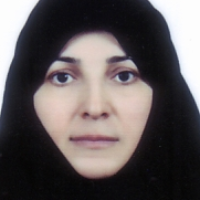Life Satisfaction and Marital Satisfaction Based on Lived Experiences of Working and Housewives: a Phenomenological Study
Family is the most important element of society that is necessary for the survival of society. Women's housekeeping and employment may affect life satisfaction and marital satisfaction, which are important factors in strengthening the family.
The aim of this research was to study the life satisfaction and marital satisfaction of working and housewives.
In this study, a qualitative approach was used in a phenomenological way. For this purpose, using semi-structured interviews, lived experience of 13 employed women and 13 housewives who were selected heterogeneous and purposive sampling method. Colaizzi method was used to analyze the data.
From the analysis of the interviews, 34 codes were obtained. Employed and housewives in 8 experiences including relationship satisfaction with husband, spouse support role, life satisfaction, relationship satisfaction with main family (s), child satisfaction, planning to have a child, richer meaning of life by having a child were common to building a mutually constructive relationship; but They had different experiences in terms of time together, activity, adaptation, hedonism. Examination of lived experiences revealed passivity and hedonism for housewives and role-playing, lack of time with family, and lack of receiving attention for self-employed women.
The results of this study showed that the disadvantages of working for women are more than the disadvantages of being a housewife, so psychological interventions are necessary to improve negative employment experiences for working women and also to moderate hedonism and avoid passivity for housewives.
-
The Mediating Role of Fear of Negative Evaluation in the Relationship between Self-Compassion and Loneliness in Adolescents
*, Fatemeh Mofatteh
Rooyesh-e-Ravanshenasi, -
Analyzing the Challenges and Components of Remarriage Instability in Couple Therapy Applicants: Grounded Theory Research
Habibeh Bahrami Nejad, *, Kiomars Farahbakhsh, Mohammad Asgari
Journal of Applied Psychology,



